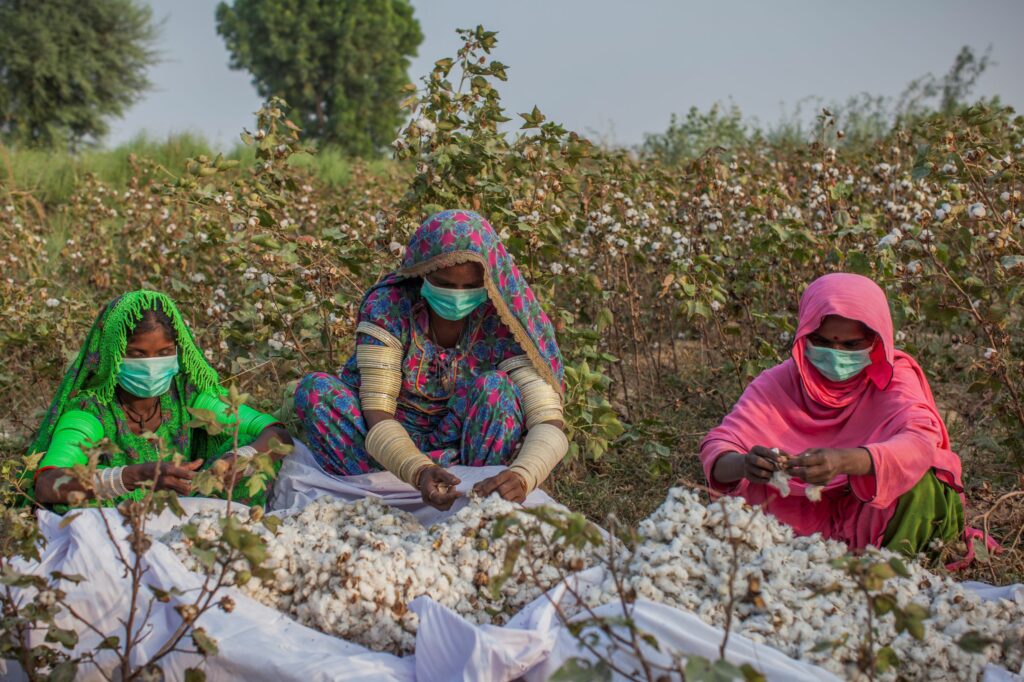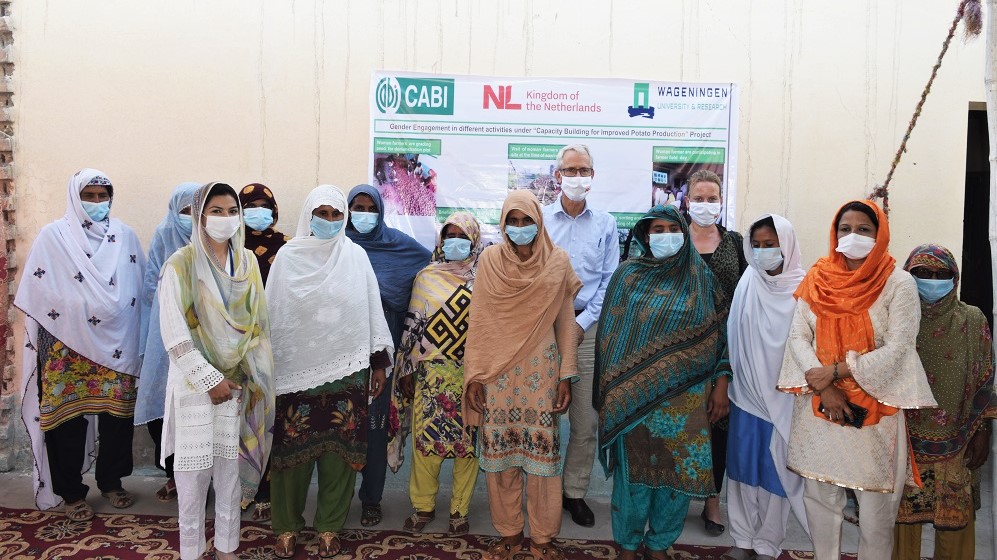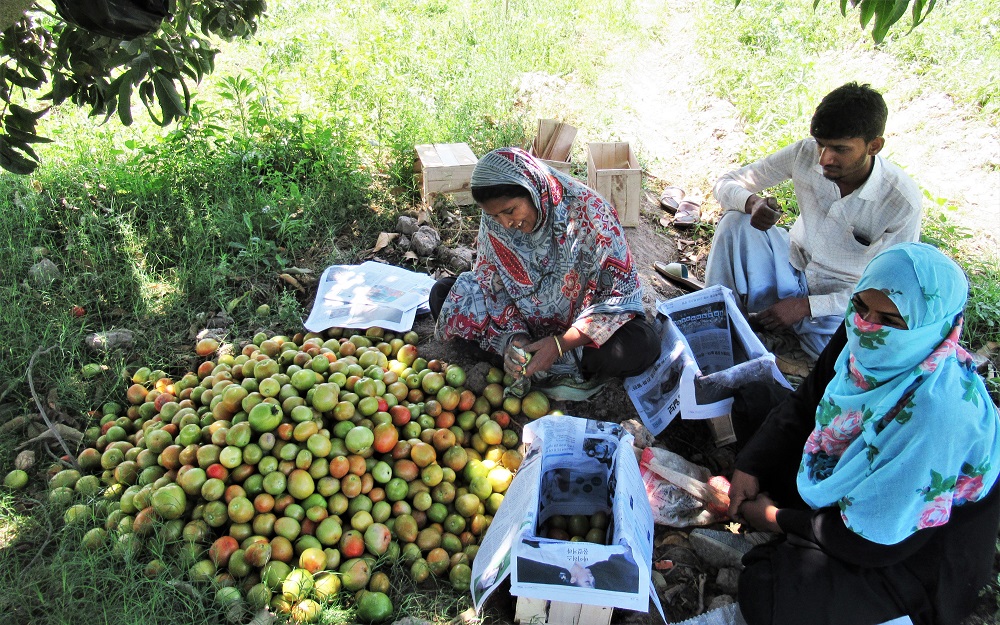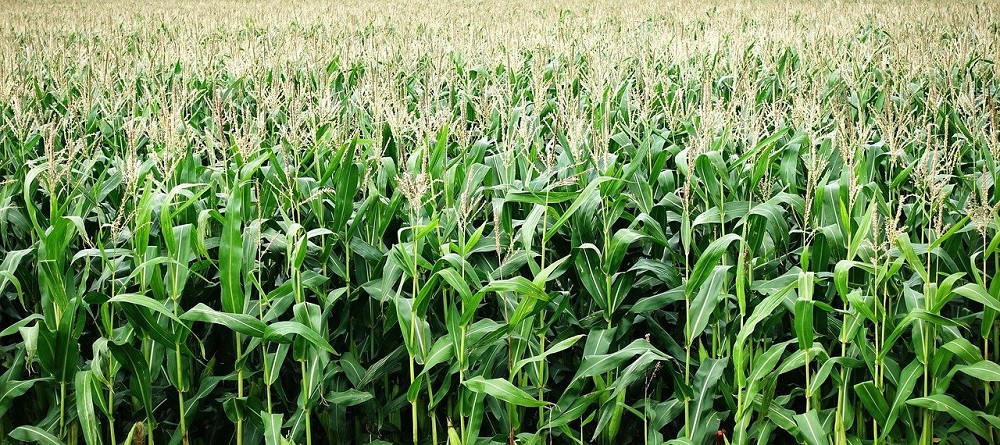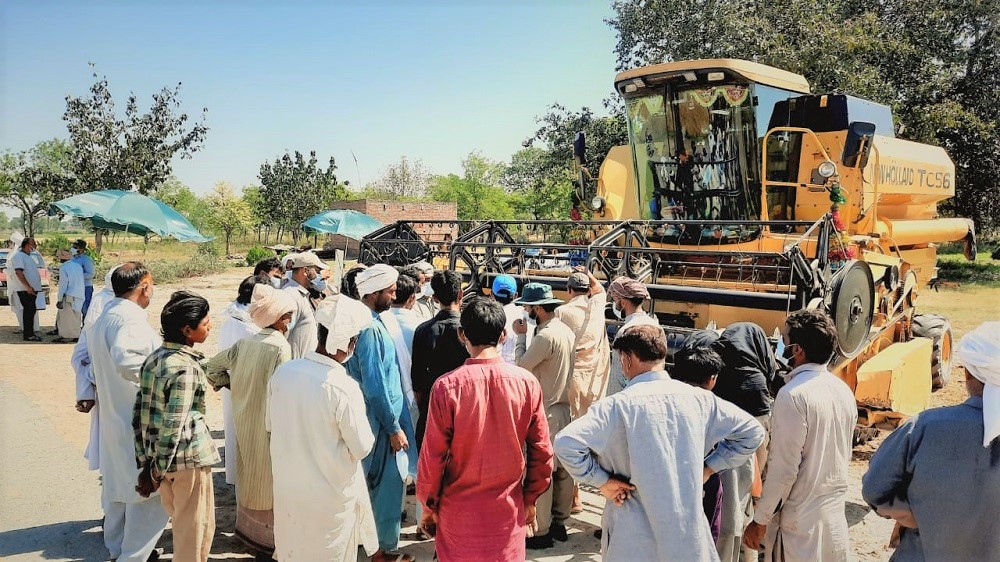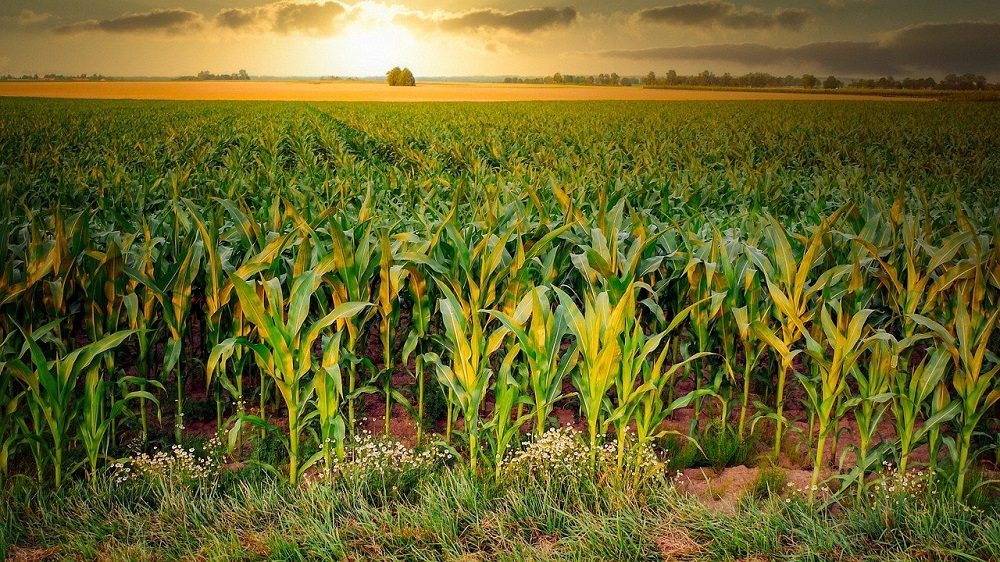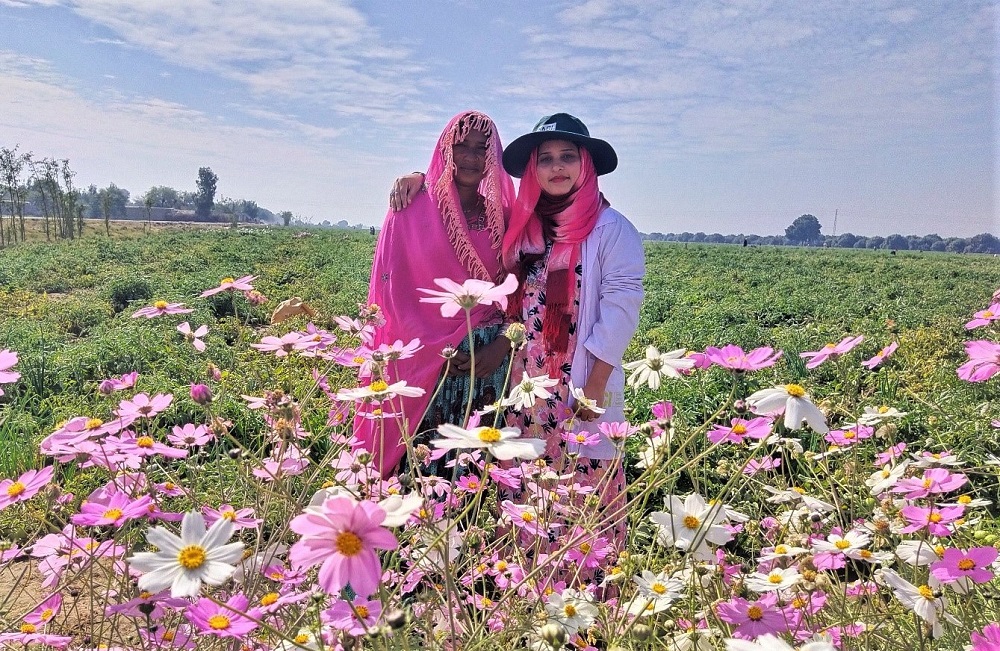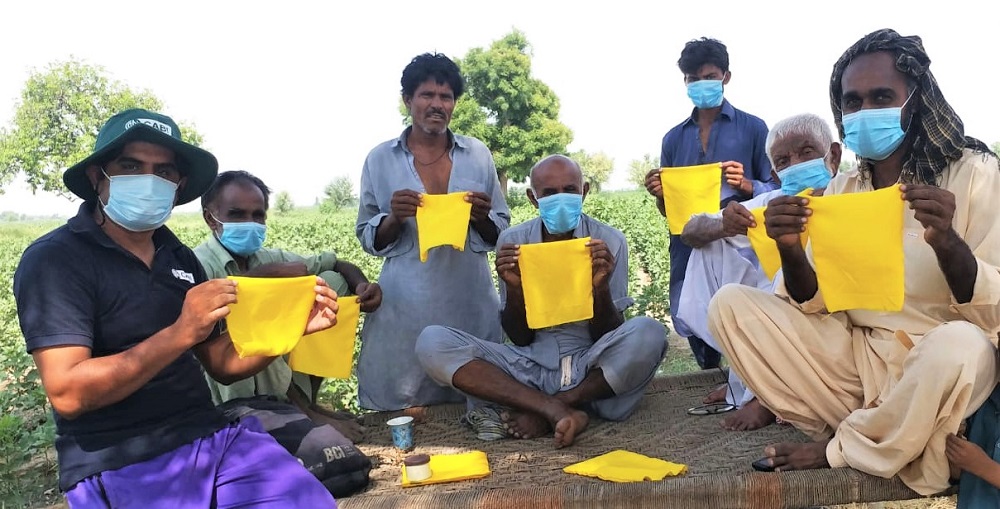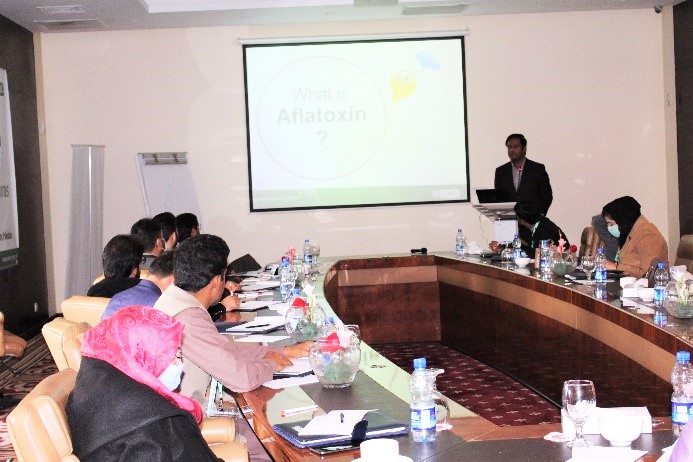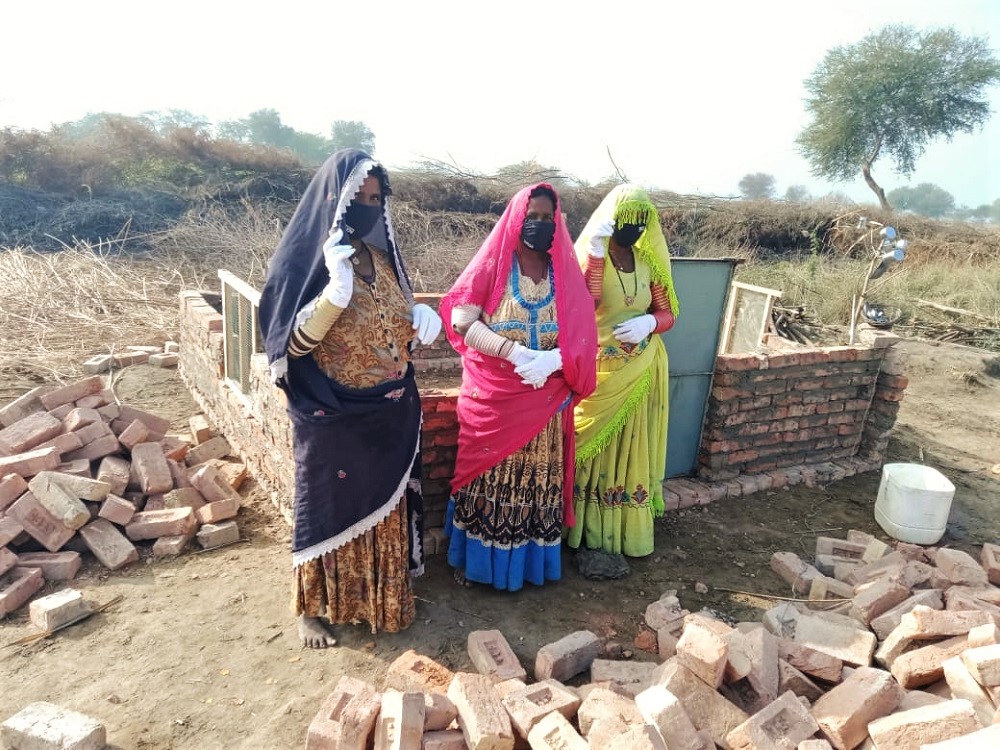CABI Blog
Tag: Pakistan
You are here: CABI Blog
Organic cotton in Pakistan: policy analysis and recommendations
July 6, 2021
Babar Latif Baloch, Toby Penrhys-Evans, Umair Safdar
1 comment
As the fourth largest cotton producer worldwide, cotton is an integral part of Pakistan’s economy contributing 9.5% of its gross domestic and serving as a core livelihood for 15 million cotton workers. In addition to bringing US$3.5 billion as foreign currency each year to the country, it provides crucial income to cotton-producing households, accounting for…
Dutch Ambassador to Pakistan meets small-scale potato farmers for update on potato capacity-building project
June 29, 2021
Hafiz ur Rehman, Maila al Saba Shah, Umair Safdar, Yasar Saleem Khan
No Comments
Potato is an important vegetable crop of Pakistan with 88% of production linked to Punjab state – of which 70% comes from within four districts; Okara, Sahiwal, Pakpattan and Kasur in Pakistan.
Farmer praises CABI’s postharvest training to help boost Pakistan’s smallholder tomato production
June 9, 2021
Muhammad Asif, Rehan Riaz, Umair Safdar
No Comments
Tomato smallholder farmer Irshad Bibi has praised CABI’s postharvest training delivered in Pakistani village of Baili Janobi, District Muzaffargarh, which was aimed at improving ways of handling, packing and transporting the crop to market.
Using natural solutions to overcome crop toxins and increase Pakistan’s maize production
June 7, 2021
Babar Bajwa
1 comment
On World Food Safety Day, 7 June, we look at how a natural solution to a maize toxin is helping to safeguard Pakistan’s food security and smallholder farmer incomes. Aflatoxin contamination presents a severe threat to Pakistan’s population including its smallholder farmers, writes Dr Babar Bajwa, Senior Regional Director – Asia, CABI. They cause serious…
Punjab wheat growers hope to boost productivity with combine harvester and wheat straw chopper
May 5, 2021
Saqib Ali, Umair Safdar
No Comments
CABI is working with the Asian Development Bank (ADB) to help small-scale wheat farmers in the Hafizabad and Sheikhupura districts of Punjab, Pakistan, boost their productivity by demonstrating the benefits of modern machinery – the New Holland TC-56 combine harvester and wheat straw chopper.
Maize growers of Punjab helped to manage aflatoxins through biological control technology
May 4, 2021
Babar Bajwa, Sabyan Faris Honey
No Comments
Maize crop in Pakistan presents a remarkable success story from the last few years. For instance, the country’s maize production increased from 705 tonnes in 1971 to 7,000 tonnes in 2020 – growing at an average annual rate of 5.15%.
Kamla Bai charts her journey of empowerment from farmworker to women village trainer for CABI
April 29, 2021
Kainat Panhwer, Noor Nabi Bhutto, Noreen Mangrio
No Comments
This is the story of Kamla Bai who has been a Better Cotton Initiative (BCI) farmworker since 2015. Mrs Bai belongs to a minority Hindu community and lives in a small village of district Mirpur Khas in Pakistan. She received her education to Matric level (10th grade), graduated from high school, and has since been…
Sustainable cotton production ‘through the eyes’ of a Better Cotton farmer
April 9, 2021
Noor Nabi Bhutto, Noreen Mangrio
No Comments
Mr Javed is a resident of the village Jameel Dall, union council Mir Imam Bux Talpur, in the district of Mirpur Khas in Pakistan. He has, since 2012, been one of the active farmers of CABI’s project to help improve cotton production which is run under the Better Cotton Initiative (BCI).
CABI helps build capacity of government stakeholders in Pakistan to tackle aflatoxins with biological controls
April 7, 2021
Babar Bajwa, Sabyan Faris Honey
1 comment
Aflatoxins are powerful fungal toxins that contaminate many agricultural products, including cereal grains, chilies, dry fruits and nuts. They also well affect milk because some livestock feed contains aflatoxin. In Pakistan, aflatoxin concentrations in harvested grain frequently exceed the level permitted in countries where aflatoxin in food and feed is regulated. The Aflatoxin Control in…
Better Cotton Initiative is empowering rural women in Pakistan through entrepreneurship
March 8, 2021
Naheed Babar, Noor Nabi Bhutto, Noreen Mangrio
2 comments
As we celebrate International Women’s Day 2021 today (8 March) and its theme of ‘Women in leadership: Achieving an equal future in a COVID-19 world’, CABI’s Naheed Babar, Noreen Mangrio and Noor Nabi Bhutto highlight how CABI’s role in the Better Cotton Initiative is helping to empower women in Pakistan through entrepreneurship.
Subscribe to blog
DISCLAIMER
Views expressed in contributions do not necessarily reflect official CABI positions.
Archives
Categories
- Agriculture and International Development
- Veterinary and Animal Sciences
- Climate change and biodiversity
- Publishing
- Value chains and trade
- Crop health
- Environmental Sciences
- Human Sciences
- Tourism, Hospitality and Leisure
- Food and nutrition security
- Plant Sciences
- Gender and youth
- Digital development
- Development communication and extension
- Economic development
- Invasive species
- CABI Bioservices
- One Health


